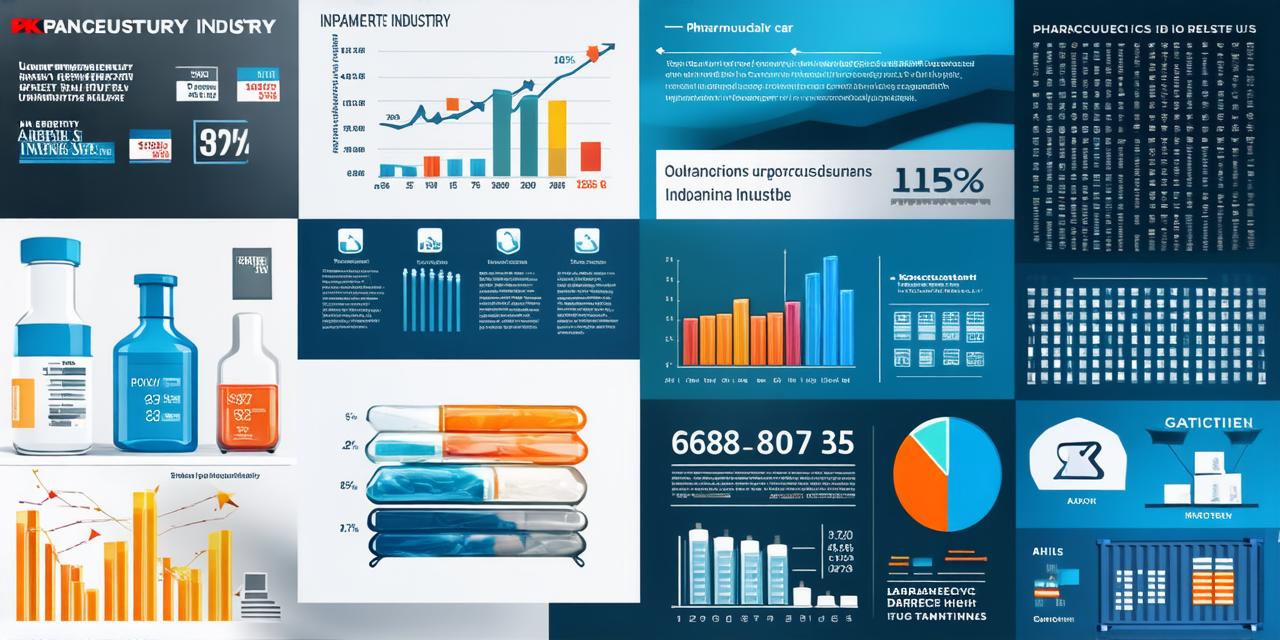The Impact of Outsourcing on the Pharmaceutical Industry
Introduction
Outsourcing has become an essential part of the pharmaceutical industry’s operations. Many companies have started to outsource various aspects of their business, including research and development, manufacturing, and distribution.
Benefits of Outsourcing in the Pharmaceutical Industry
Outsourcing can bring several advantages to pharmaceutical companies. One of the most significant benefits is cost savings. Many pharmaceutical firms outsource their manufacturing processes to countries where labor costs are lower, such as India and China. This allows them to reduce their overhead expenses, including salaries, rent, and utilities.
Additionally, outsourcing can improve efficiency by allowing companies to focus on their core competencies while leaving the more routine tasks to external partners.
Another advantage of outsourcing is access to specialized expertise. Many pharmaceutical companies lack the necessary resources and expertise to conduct cutting-edge research and development. By outsourcing these tasks, they can access the expertise of specialized firms with the necessary knowledge and experience. This can help them develop new drugs more quickly and efficiently, giving them a competitive advantage in the marketplace.
Outsourcing can also enhance the quality of pharmaceutical products. Many external partners have advanced manufacturing facilities that are equipped with the latest technology and equipment. This enables them to produce high-quality products that meet the most stringent standards. Additionally, outsourcing can help pharmaceutical companies identify potential issues early in the development process, allowing them to address them before they become major problems.

Real-Life Examples of Outsourcing in the Pharmaceutical Industry
The pharmaceutical industry has seen numerous examples of successful outsourcing arrangements. One such example is Merck, which has partnered with several external firms to improve its drug development processes. Merck has outsourced research and development tasks to various partners, including Genzyme and Astellas Pharma. This has allowed the company to focus on its core competencies, while leaving the more routine tasks to external partners.
Another example of successful outsourcing in the pharmaceutical industry is Pfizer’s partnership with Hovid, a Swiss-based firm that specializes in manufacturing and packaging pharmaceutical products. This partnership has allowed Pfizer to focus on its research and development activities while leaving the manufacturing and packaging processes to Hovid. Additionally, the partnership has helped Pfizer reduce costs and improve efficiency, allowing the company to bring new drugs to market more quickly.
Drawbacks of Outsourcing in the Pharmaceutical Industry
Despite its numerous advantages, outsourcing can also have some drawbacks. One of the most significant concerns is the loss of control over critical aspects of the business. When pharmaceutical firms outsource tasks to external partners, they may lose some degree of control over how these tasks are performed. This can lead to issues such as quality control problems and delays in product development.
Another concern is the risk of intellectual property theft. Pharmaceutical companies often outsource research and development tasks to external partners, which may put their intellectual property at risk. If a partner firm is found to have stolen or misused this intellectual property, it can cause significant damage to the pharmaceutical company’s reputation and bottom line.
Future Outlook for Outsourcing in the Pharmaceutical Industry
Despite the challenges associated with outsourcing, the trend is likely to continue in the pharmaceutical industry. As companies look to improve efficiency, reduce costs, and enhance the quality of their products, outsourcing will remain an attractive option. Additionally, advancements in technology and communication tools are making it easier for pharmaceutical firms to collaborate with external partners, further enhancing the benefits of outsourcing.
FAQs
1. What are some of the benefits of outsourcing in the pharmaceutical industry?
Outsourcing can bring several advantages to pharmaceutical companies, including cost savings, access to specialized expertise, and enhanced product quality.
2. What are some of the drawbacks of outsourcing in the pharmaceutical industry?
Despite its numerous advantages, outsourcing can also have some concerns, such as the loss of control over critical aspects of the business and the risk of intellectual property theft.
3. How has outsourcing transformed the pharmaceutical industry?
Outsourcing has transformed the pharmaceutical industry by allowing companies to focus on their core competencies, access specialized expertise, and improve product quality. Many firms have also reduced costs and improved efficiency as a result of outsourcing.
4. What is the future outlook for outsourcing in the pharmaceutical industry?
The trend towards outsourcing is likely to continue in the pharmaceutical industry, with advancements in technology and communication tools making it easier for firms to collaborate with external partners.
